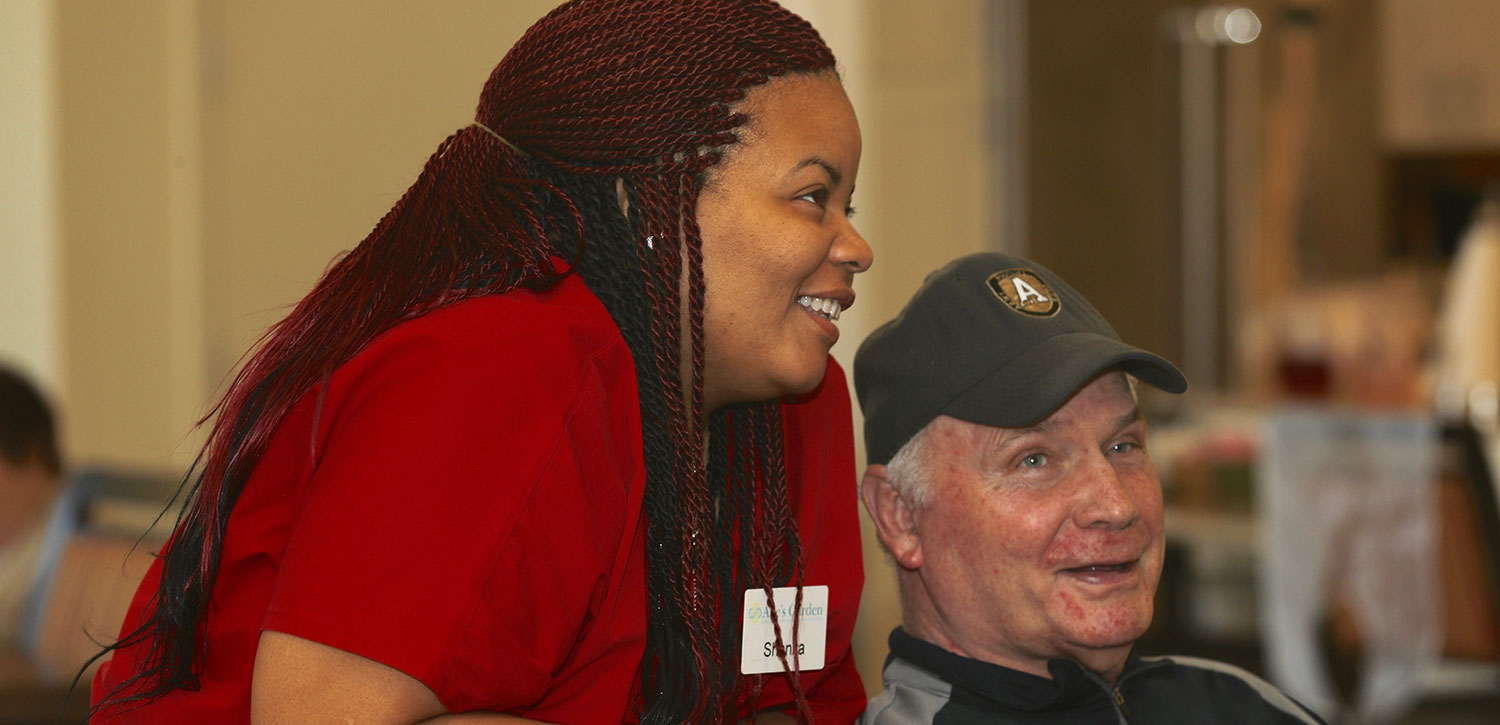By Vicky Raines, Director of Resident Services
It’s important for caregivers to accept support during the dementia journey. Respite benefits your own mind and body health, as well as the wellbeing of the loved one you’re caring for. Be proud of taking the step to seek help. Here are some tips to help you though the process of selecting a care partner.
While interviewing dementia care partners for in-home assistance, ask about core requirements such as related professional education, experience assisting with activities of daily living, and dementia care training. Additionally, inquire about his or her interests and hobbies to see if the care partner and your loved one have common ground. If they do, this provides a great foundation for topics to talk about and engagement activities to do together. Consider how you would feel introducing the candidate to your love one.
Once you’ve narrowed down the list of candidates, introduce each one to your love one. Pay special attention to how your love one and the care partner interact. Is the care partner sensitive to your loved one’s needs? Does the care partner offer options to determine your loved one’s preference?What is the care partner’s demeanor, tone, and level of patience? Are the care partner and your loved one at ease and getting along? You will know when you have selected the right care partner.
When the care partner begins to work, be present the first couple of shifts and act as moral support for your love one through the transition. Let the care partner do his or her work and see how it goes. Step in if your loved one is refusing the care partner’s help. For example, if your love one needs bathing and he or she is refusing to let the care partner assist, start the process yourself and ask the care partner to assist you by getting towels and soap. You may be able to switch places during the process. Then you can stand back and be there for moral support.
You and the care partner can learn caregiving tips by watching these educational videos.
If you’re looking to move your loved one to an assisted living community, a helpful guide on evaluating residential care can be accessed here.

